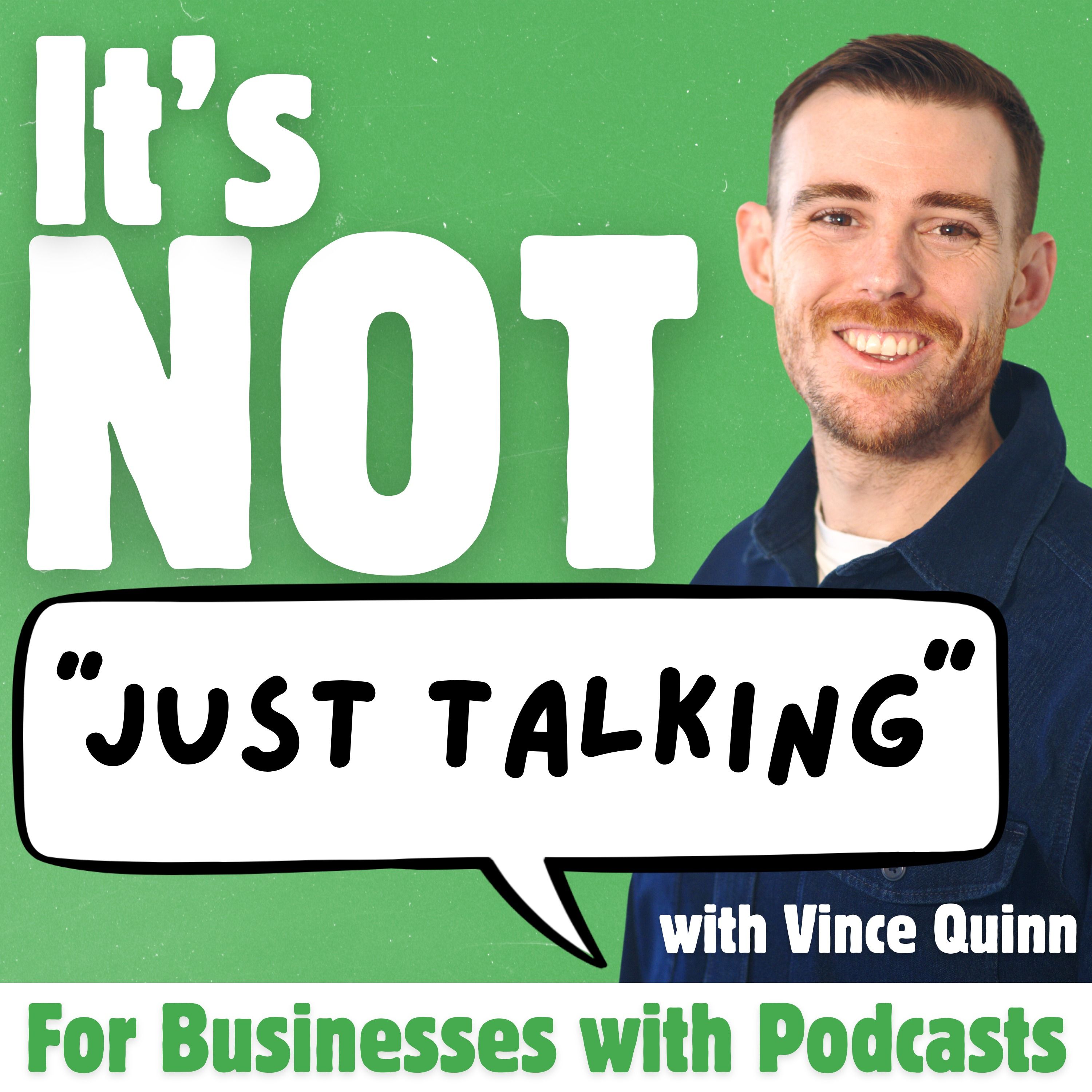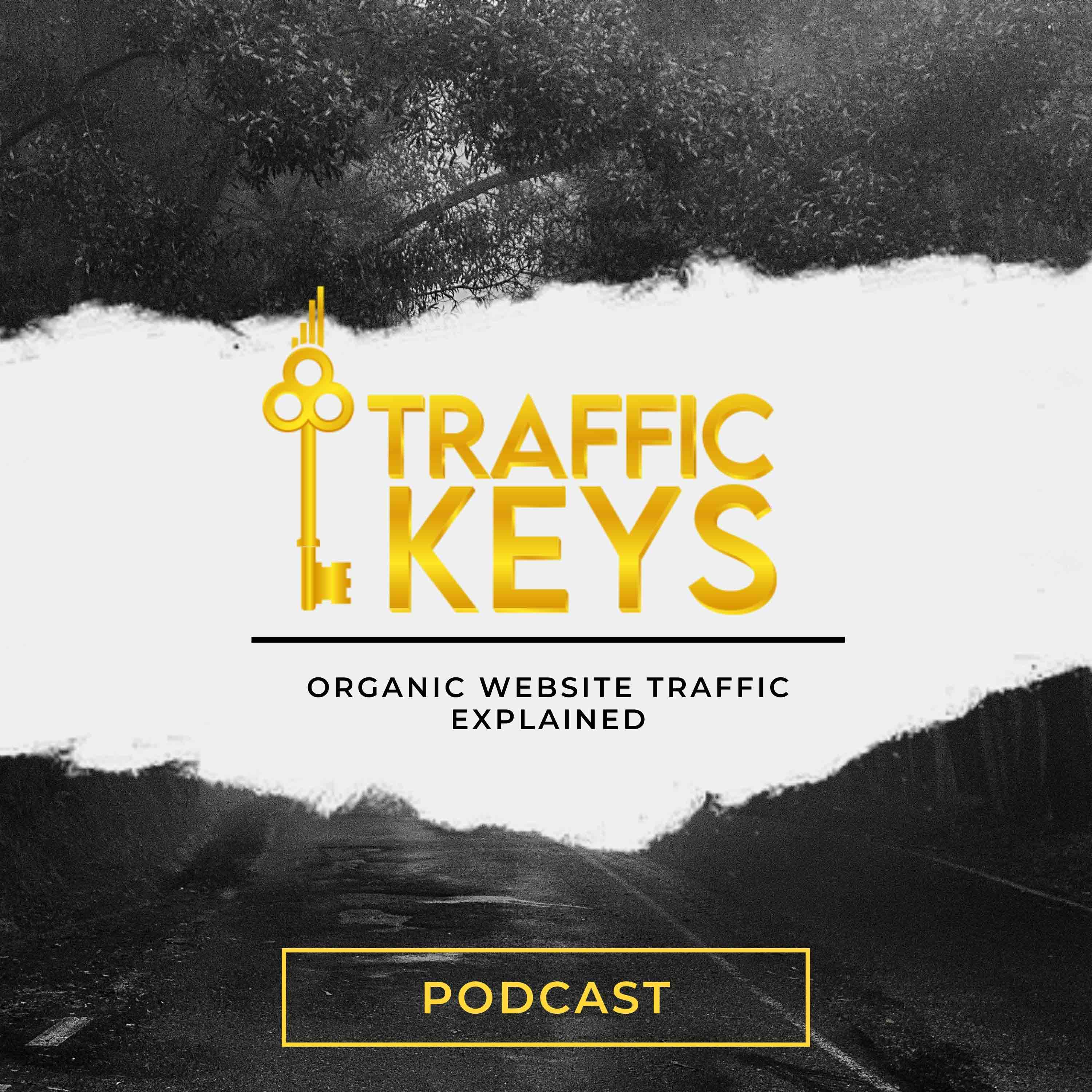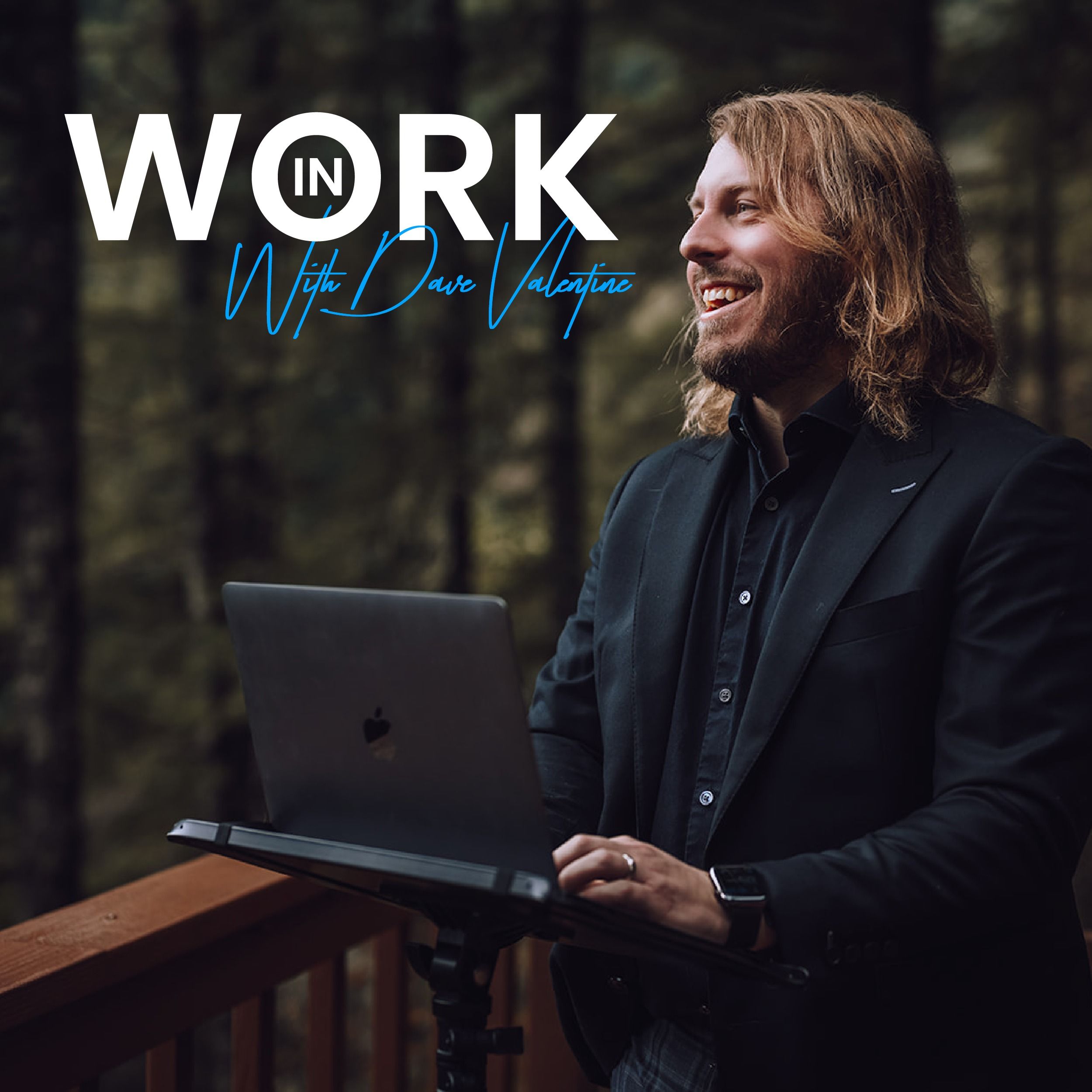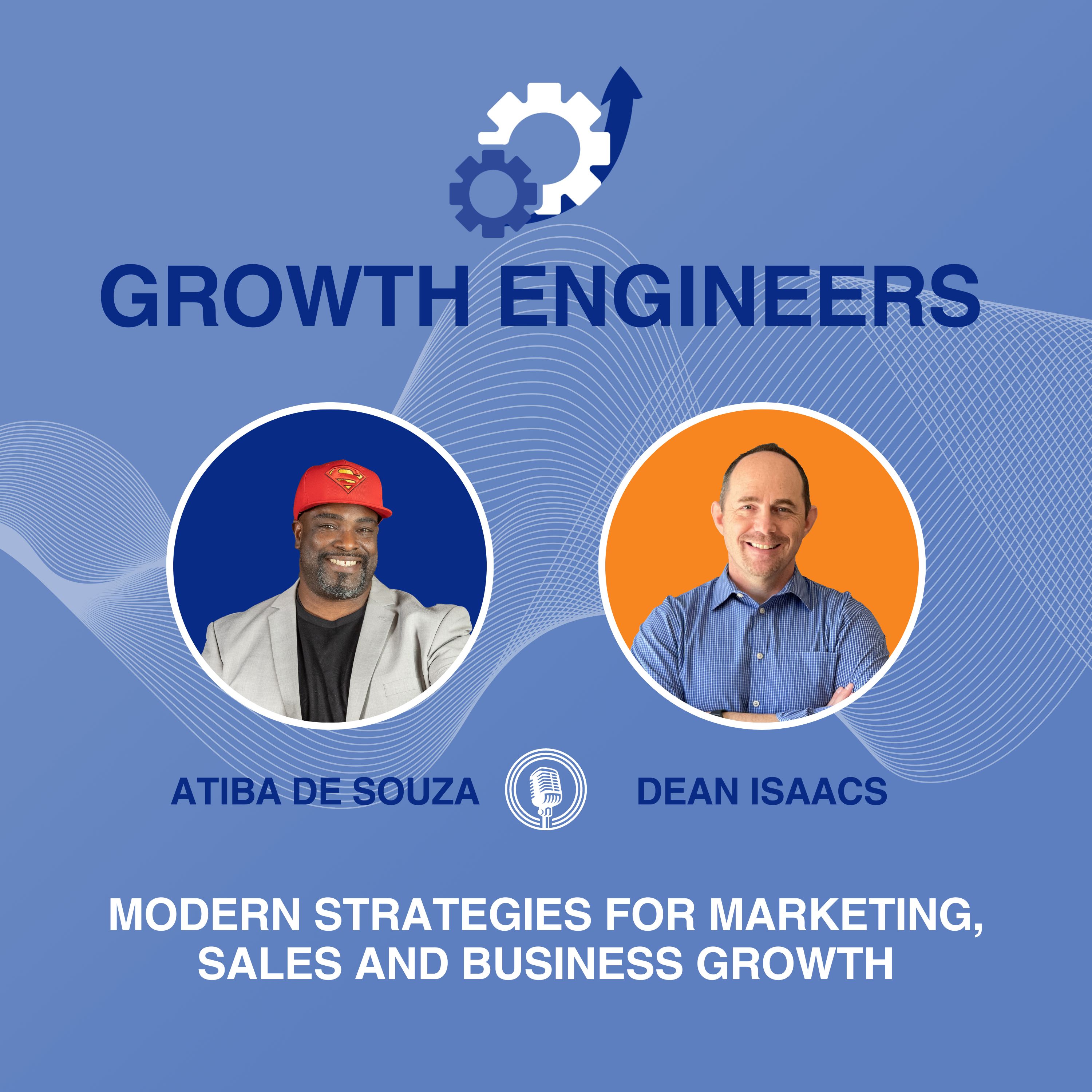
Tech Diva Biz Talks
Ready to mix business with brains, tech, and just the right amount of side-eye? Then welcome to Tech Diva Biz Talks (formerly the Business Chop), the podcast where strategy slays, tech behaves (mostly), and your host, Audrey “Tech Diva” Wiggins, says what everyone else is thinking about marketing and entrepreneurship.
We’re spilling the tea on business blunders, brand glow-ups, digital do-overs, and how to stop ghosting your website. Interviews? Sometimes. Sass? Always. Tech working better for your business? That’s the goal.
Subscribe now to catch every episode and exclusive content.
Want to be a guest on Tech Diva Biz Talks? Send Audrey Wiggins a message on PodMatch, here: https://www.podmatch.com/hostdetailpreview/audreywiggins
#LetsTalkTech #Entrepreneurship #PublishedAndPaid #Authorpreneur #Storytelling #EntrepreneurLife #MarketingMoves #SuccessBlueprint #StartupHacks #KeepItLegal #ScaleYourBusiness #TechForBiz #SmartMoney #BrandingBoss #Innovation #HustleSmart #Mindset #DigitalMarketing #ExitStrategies #SuccessionPlanning #VisualStorytelling #TeamWork
The Tech Diva Biz Talks podcast is a production of Altogether Marketing LLC founded by Audrey Wiggins, Chief Brand Strategist aka Tech Diva. Visit https://altogether.biz for more information.
Tech Diva Biz Talks
Missionaries Not Mercenaries: Redefining Remote Work Culture with Luis Derechin
As entrepreneurs, we're constantly seeking ways to scale our businesses without breaking the bank or compromising on quality. The challenge of finding top talent while managing costs is a familiar struggle for many of us.
Hiring shouldn't feel like an impossible triangle—burning cash for top talent, settling for low-cost underperformance, or missing your growth moment altogether. In this episode of The Business Chop, we chop it up with Luis Derechin, CEO of Nir Yu, who introduces us to a smarter way forward: R.E.M.O.T.E. Intelligence.
Luis breaks down his proven framework for building high-performance teams with Latin American talent—without sacrificing quality, speed, or company culture. We unpack the seven deadly sins of remote hiring, how to scale without the burnout, and why hiring missionaries (not mercenaries) will transform your business. From onboarding to performance metrics to pay transparency, Luis shows us how to rethink outsourcing—starting with a mindset shift.
If you’re a solopreneur or startup leader struggling to scale smart, this conversation might be your game changer.
Key Takeaways:
- Why traditional outsourcing fails growing companies
- The 6 pillars of R.E.M.O.T.E. Intelligence
- Latin America’s “hidden goldmine” of talent
- How to find and retain mission-driven remote team members
- Busting myths about communication and culture fit
Contact Luis at nir-yu.com or Linkedin.com/in/luisderechin
Buzzsprout - Let's get your podcast launched!Start for FREE
Designrr for eBooks, Blogs
Create eBooks, Blogs, Lead Magnets and more!
Riverside.fm Your Own Virtual Studio
Professional Virtual Studio
Altogether Domains, Hosting and More
Bringing your business online - domain names, web design, branded email, security, hosting and more.
Digital Business Cards
Let's speed up your follow up. Get a digital business card.
Small Business Legal Services
Your Small Business Legal Plan can help with any business legal matter.
Mens and Womens Hats
Since 1972, American Hat Makers has been dedicated to the art of fine hat making.
Disclaimer: This post contains affiliate links. If you make a purchase, I may receive a commission at no extra cost to you.
Want to be a guest on Tech Diva Biz Talks? Send Audrey Wiggins a message on PodMatch, here: podmatch.com/hostdetailpreview/audreywiggins
To work with Audrey schedule a breakthrough/discovery session.
[00:00:00 - 00:01:03]
Welcome to the business chop where challenges, success, rewards and solutions to entrepreneurship collide. Let's chop it up. Hey, hey, chop squad. Today we're chopping it up with someone who's rewriting the rules of remote hiring. Luis Derechin, CEO of Nir Yu. You know that frustrating triangle every founder faces. Hire top talent and burn through your Runway. Outsource cheap and get burned or wait so long to hire that you missed the moment. Well, Luis says "what if you didn't have to choose?" We're going to be diving into his R.E.M.O.T.E. and that's an acronym; Intelligence Model. And no, it's not your typical outsourcing pitch. We're talking cost savings and culture alignment, scaling smarter and faster. Whether you are solopreneur or leading a growth stage startup, this conversation is packed with fresh strategy, bold insights and a few hiring truths that might sting the just a little. Is that true, Luis?
[00:01:03 - 00:01:57]
Well. Wow, what an intro. So look, I think every business person has been been stung many times, right? Other if it was easy, anyone would do it. And remote hiring is, is one of those where, where people just tend to get stung. All sorts of reasons. But yes, yes. What we've discovered in working with hundreds of of companies is that there are, you know, what we call the remote team death trap. So it's, it's seven components or seven reasons why entrepreneurs or business folk get stung when hiring remotely. We can go into these seven components, you know, in detail later, but as an antidote to being stung, what we've come up with is with remote intelligence. And as you well said, remote is an acronym we too can go into into what remote means.
[00:01:58 - 00:03:04]
All right, well that's awesome. So we're going to get into it. On the other side of this message, COMMERCIAL it's Audrey Wiggins, your Tech Diva, celebrating 18 years in business. Thank you to my amazing clients, trusted vendors and faithful cheerleaders. We've come a long way since launching all together marketing and it's all because of you. From marketing strategy to branded merchandise, here's how we've helped businesses shine. Graphic and web design, marketing and branding strategy, social media management, domain names and web security, Online courses and coaching, video production, podcast planning and design. Branded merchandise. So enjoy. 18% off graphic and web design services now through July 7th in celebration of her 18th anniversary.
All right, everyone. Luis, let's get into it. All right, you know, this idea of impossible triangle really hit me and you know the cost, quality and speed. I've seen so many founders get stuck in that trap as we talked about. So what's your take on why we still treat those as mutually exclusive.
[00:03:04 - 00:04:40]
For some reason we all have geographic boundaries as part of our mind frame. So whenever we're looking to hire, right, we all want to hire close to us so that we can sit with the person and work shoulder to shoulder, so to speak. And even if we decide that it's a role that can be done remotely because we're having issues in finding the right talent close to, so that, you know, again, the shoulder to shoulder can, can be done, then you look at hiring as close to you as possible. Right. So you're in Cleveland. You're going to look for, you know, Akron or Akron, sorry, Akron, sorry about that. I hope you don't have any listeners there or I'm, I'm gonna get a shellacking or you know, or, or somewhere close to you. But ultimately, you know, part of the mind shift that has to happen is if you're going to hire remotely and you're willing to hire miles from you or 100 miles from you, so why not cross the physical border and actually hire in Latin America so that you can hire potentially faster? Because the war for talent is less populated in Latin America so you'll be able to find talent easier and typically you'll be able to save 60 to 70%. So if. Back to your question. So if we treat geography as a non issue, then you begin to see how you dissolve the, the triangle that you were talking about.
[00:04:40 - 00:04:59]
All right, so let's get back to this, this remote, let's get back to that. So I'm kind of intrigued with that, that intelligence framework. It sounds like more than just a play on remote work. As you're, we're talking about there. What were you seeing in the market that made you say we need to do this differently?
[00:04:59 - 00:07:26]
So let me tell you what remote means. From there we can take it to what we were saying. In order for people to be successful, we realized that there were six things that have to be done with great care. And the first one is you have to be rigorous in your talent selection. It sounds like a no brainer, but you, you'd be surprised how many people, because they're now saving 60 to 70%, they see this as a cost saving strategy. And then they become less picky or less rigorous about selecting talent. Right. Because they're going to pay less. Secondly, if you find the talent then you sort of figure, well, they're going to be able to onboard themselves. Right. Or integrate themselves into, into the organization on their own. So the E stands for expert onboarding and integration. So you have to be super careful with how you you onboard and integrate people into your organization. The M stands for managed support and services, and that's providing the same level of support for your remote team that you would provide the team that works shoulder to shoulder with you. The O stands for optimized team performance. Being able to establish metrics and then follow the metrics, right? Whether it's OKR or project plan or whatever it is, but making sure that you are optimized the team performance one way or another. And then T, you have to make sure that the pricing is transparent, right? Because a lot of people end up working with an agency and if they work with an agency, then they end up paying the agency and they have no idea how much they're paying the end person or the person that's actually going to be doing the work. We've been surprised by having some of our, some of the companies that we work with come back and say, I can't believe it, right? I mean, because I was saving 50% or 40%, I was happy to pay it and then didn't realize that the person was only getting paid 20% of what I was paying. So it was the provider that was taking most of the margin. So transparent cost plus is last one. And then if you do the remote correctly, what you're going to get is E enhanced scalability and growth. So remote is. Is is the acronym and that's what stands for Audrey.
[00:07:26 - 00:07:50]
Oh, awesome. All right, thank you. Okay, so let's talk Latin America thing then. So I've worked with, you know, some amazing talent from that region, my web TV platform. The guys out there, they're in Valencia, Spain, so they take care of that and sometimes they do some extra work for me. What do you think makes it such a gold mine for companies that they want committed, high performance team members?
[00:07:50 - 00:09:46]
The gold mine, I think lies in several factors. I'll say the first one is the availability, right? Talent availability. So the, as you and your listeners are aware the, the talent or the war for talent in the US with such low unemployment, especially for certain roles, right? Tech roles, accounting roles, bookkeeping roles, legal roles. For all the, you know, the types of jobs that can be done remotely is, are, are those where there are. The, the number of people that can do them in the US is very small. Therefore the fact that there are high, speak very good English, whether some accent, little accent or even native English, and that are educated and trained to be able to perform those jobs creates the first element of the gold mine. The second one is people in their home countries, whether Mexico, Honduras, Nicaragua, Argentina, Colombia, you name it, any of those, they're typically going to get paid less than American companies can pay, even with huge savings for the American company. So now you have talent, availability, and you have the ability to pay people 60, 70% less than you would in the U.S. and then the third one, which is sort of a combination of both of those people in Latin America, when they work for US Companies are so grateful they're getting the opportunity to work remotely and get better paid, where they commit themselves, you know, fully to doing their job. So, so the level of commitment that these people are willing to put into the job, in my opinion, or in my experience, much greater than, than, than a lot of times in the U.S. because in the U.S. you know, it's just, well, it's, it's a job. I, I can always get a number where, where, whereas these people are fully committed. So if, if you think about it, Audrey, availability, price, lower price point and more commitment. Isn't that a gold mine? Isn't that what, what, what, what? You know, every business is looking to hire.
[00:09:46 - 00:09:56]
That's right. So let's bust some other memph then. In your experience, what's the biggest misconception about outsourcing that still keeps founders from scaling smart? What's holding us back?
[00:09:56 - 00:12:27]
The fact that jobs can't and the fact that you're not going to find the right talent. We've spoken to many companies that say, oh, I had a really bad experience. I remember three years ago during COVID I hired someone in, in Peru to do X, Y and Z for me, and the result wasn't great. So I refused to go back and, you know, and hire someone else. Audrey, that's akin to saying, you know, I hired a developer in San Francisco and I didn't have a good experience, therefore there are no good developers in San Francisco. We all a myth, right? So I, I think that's, that's one of the biggest myths. And, and then the second one is communication skills, right? You think Latin America people aren't going to be able to communicate in, in the same way? I don't want to say it's nothing could be further from the truth because some of that exists. However, English is the dominant business language or the lingua franca of, of business throughout the world. So children in Latin America as well as many other countries learn English from a very young age. Therefore they've been speaking it for most of their life. If, in addition, you consider that most of the people that can be hired remotely probably have already had experience, or you can, you can gauge for that in their resumes whether they have experience doing it previously, they're going to understand business English, they're going to be able to communicate. The availability of either slight accent all the way through native speakers is incredible. I'll share another story with you. So I have a friend who has a call center in northern Mexico in the city of Monterrey. And in Monterrey, he basically hires deported dreamers. So dreamers are, you know, the children of illegal aliens that were living in the U.S. right, in previous administrations they call them dreamers. So it just so happens that there are thousands or tens of thousands of these kids that maybe I use the word deported. And, and it's not often, it's not always the case. So they left willingly or they just grew up there and then decided to come back to Mexico or what. And they're now living in Mexico. Think about this. These are people that as children grew up in the States speaking language right, the way that you and I do. So they have zero accent. Maybe they have a California accent or a Texas accent, but they have zero Latino accent. And then this guy fills up his call center with, I think he now has 300 of these. And you know, you can't tell the difference that, they're Mexicans on the other side of the border.
[00:12:29 - 00:13:08]
COMMERCIAL Knock out your competition with Altogether Marketing. We elevate your brand. Take a stance with your business name, logo, the tagline, your colors, even the fonts for your business. And then jab left with your website, jab right with core values. Back up with product experience and bring it on with you. Visit Altogether.Biz and let us help you create a knockout brand.
For any listeners though, who are at that scary but, but at the tipping point, growing fast, but. But can't hire fast enough. Where do, where do they even start? And what's the mind shift that they need to make first?
[00:13:08 - 00:14:21]
I think there are several mind shifts. First of all, it's. You have to understand that hiring talent from Latin America is different than in the US in the US you basically go on LinkedIn or go on one of these platforms and then find someone, a consultant who can 1099 for you. Right? Yeah. And you have to understand that in the US this is very typical, right? All of us have, well, not all of us, but, but many people have two or three or, you know, different consulting gigs. So finding people to do consulting is very easy in Latin America. It's not so much. Consulting isn't as often seen for the person doing the consulting as something desirable they want full time job. So if you're willing to find people to, in Latin America to do jobs for you, typically full halftime or full time jobs, then to answer your other question, where do you find them? The way that I would go about it is I would probably go on LinkedIn and find people right? You, you set the filters in order to find the right skill sets and in, in the different countries that you want or a nearshore staffing firm such as the company that I now run, really appreciate that.
[00:14:21 - 00:14:49]
And so as we're getting close to our end because you know, that was, that was a success for sure. So Luis, thanks for, for showing us that remote talent doesn't have to mean remote connection. Your take on building mission driven teams across the borders is it's a serious game changer. So really thanks for that. And so give us a final thought and a call to action to where to find you or plug into an upcoming event you might be hosting or something like that.
[00:14:49 - 00:15:35]
Thank you. So, my last thought actually goes in sync with what you said and it's mission driven, right? You want to hire missionaries, not mercenaries. So you, you have to think of these people. You have to onboard these people. You have to convince these people. You have to make these people part of your company. Don't just think about them as, you know, some remote worker that's going to do a gig for you. You have to think about these people as a real part of your company. They will become part of company. They will work their tail off for you if you treat them correctly. And with that thought, the way that people can search for me is on LinkedIn. My name Luis, spelled in the Latin American way or the Latino way. Last name Derechin. D E R E C H I N. Look for me on LinkedIn and I look forward to connecting.
[00:15:36 - 00:16:00]
Awesome. All right, tech fam. So you heard it here. Scaling Smart is about systems and people. If you're tired of making impossible hiring choices, maybe it's time for a third pass. So definitely get in touch with Luis here to see what he has going on. And don't forget to like, subscribe and share this episode and stay plugged in because this is where business gets the jolt it needs. Until next time, keep it smart, keep it strategic, and keep it all together.
[00:16:00 - 00:16:03]
Thank you very much and I look forward to staying in touch.
[00:16:03 - 00:16:05]
Yeah, me too. All right, thanks.
[00:16:05 - 00:16:05]
All right!
Podcasts we love
Check out these other fine podcasts recommended by us, not an algorithm.

Podcasting Made Simple
Alex Sanfilippo, PodMatch.com
It's Not Just Talking with Vince Quinn
SBX Productions, Vince Quinn
Traffic Keys Podcast
Atiba de Souza
I Have A Podcast by Vinnie Potestivo
Vinnie Potestivo
Entrepreneurs on Fire
John Lee Dumas of EOFire
Imperfect Marketing
Kendra Corman
Raise the Script with Nutrigenomics
Dr. Tamar Lawful, PharmD, APh, CNGS
After Hours Entrepreneur with Mark Savant
Mark Savant
BETHEL
Dr. Oluwadara Alarape
Thoughts on Thought Leadership with Atiba
Atiba de Souza
Build Your Team
Atiba de Souza
Inspirations for Your Life
John C. Morley, Serial Entreprener
Marketing in the Age of AI
Emanuel Rose
Creativity in Focus - Audio Only
Shahar Boyayan
Make Something Happen with Audrey Wiggins
Audrey Wiggins
The UnNoticed Entrepreneur
Jim James
Music 101
Daniel Lucas / G.Mick Smith
Abstract Poetry
Daniel Lucas
Food 101
Daniel Lucas/Alessandro Panattoni
Abstract Essay
Daniel Lucas /Sal Cosenza
#iesgaherrera28d28sonidos
daniel lucas
El podcast de Lucas Daniel Porra
Lucas Daniel PorraDaily Dose of Dave Podcast
Dave Valentine
InWork Podcast with Dave Valentine
Dave Valentine
Growth Engineers
Atiba de Souza and Dean Issacs
Refuge Freedom Stories
Jonnie Taverner
St. Augustine of Hippo: Expositions of the Psalms
Mary McDonald
Podcasting for Financial Professionals
Virginia Elder
Best of Virginia Elder
Virginia Elder | Podcast Abundance
Gamify Business Tavern Tales
Paul Pape

